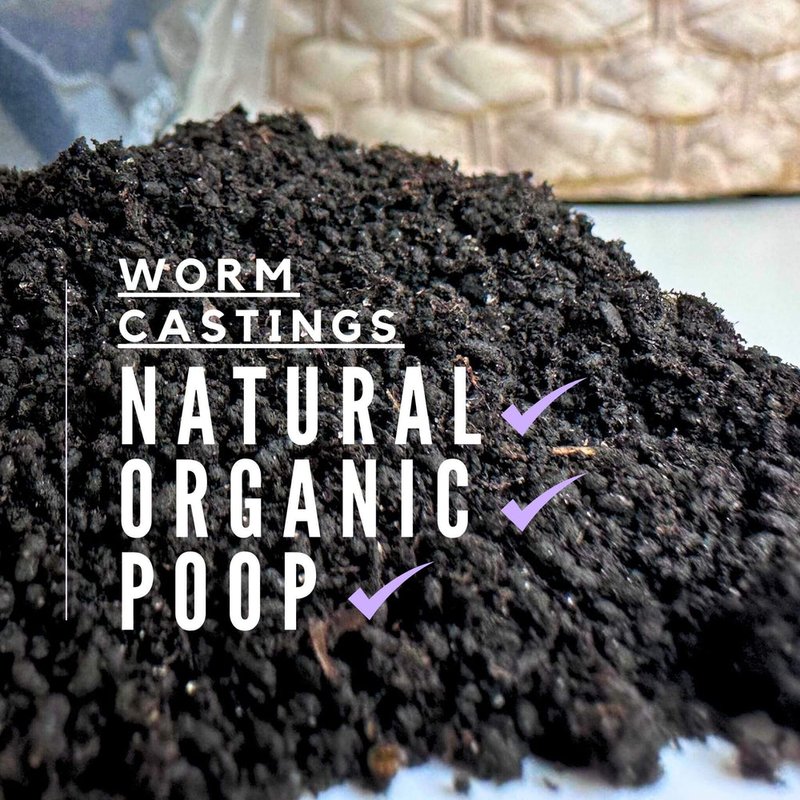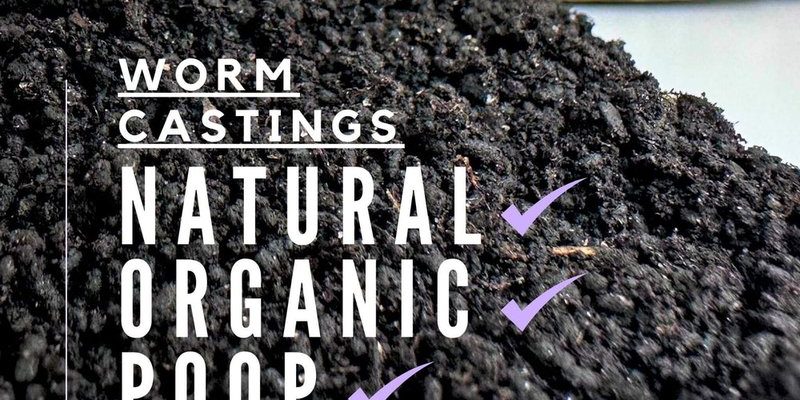
Now, you might be wondering how something as simple as worm poop can have such big benefits. Well, let me explain. When earthworms munch on organic matter—like fallen leaves and kitchen scraps—they break it down in their guts and excrete it as castings. These castings are packed with nutrients like nitrogen, phosphorus, and potassium, along with beneficial microbes. It’s a natural fertilizer that can enrich your soil and help your plants thrive. So, let’s dig deeper into why earthworm castings are considered nature’s perfect fertilizer.
What Are Earthworm Castings?
Earthworm castings, also known as worm manure, refer to the waste produced by earthworms as they digest organic materials. It might sound unappealing, but the truth is far from it. These castings resemble dark, crumbly soil—a little like those tiny balls of magic I mentioned earlier. Unlike synthetic fertilizers, which can harm the environment and lead to poor soil health over time, earthworm castings enrich the soil while promoting a healthy ecosystem.
They are a rich source of essential nutrients that plants need for growth. When you incorporate these castings into your garden, you’re improving soil structure, increasing water retention, and promoting beneficial microbial activity in the soil. Essentially, you’re turning your regular soil into a nutrient-rich haven for your plants.
Why Choose Earthworm Castings Over Other Fertilizers?
You might be asking yourself, “Why should I choose earthworm castings instead of synthetic fertilizers or other options?” Here’s the thing: while synthetic fertilizers can provide quick results, they often come with long-term drawbacks. They can strip the soil of its natural nutrients and lead to issues like runoff and pollution. On the other hand, earthworm castings are a gentle solution.
Here are some of the standout benefits of using earthworm castings:
- Rich in Nutrients: Castings contain a wealth of nutrients that are beneficial for plant growth.
- Microbial Activity: They promote healthy microbial life in the soil, enhancing fertility.
- Slow Release: The nutrients are released slowly, ensuring your plants get what they need over time.
- Eco-Friendly: Using castings reduces the need for chemical fertilizers, making it a sustainable choice.
If you’re looking for a reliable and eco-friendly option for your garden, earthworm castings are hard to beat.
How to Use Earthworm Castings in Your Garden
Using earthworm castings is pretty straightforward, whether you’re planting new seeds or nurturing existing plants. Here’s a simple guide to get you started:
1. Mix with Soil: Incorporate the castings directly into your soil before planting. A good rule of thumb is to mix about 10-20% castings into your soil mix.
2. Top Dressing: You can also sprinkle a layer of castings around the base of your plants. This will provide nutrients as the castings break down.
3. Make a Tea: Another effective method is to steep the castings in water to create worm tea. This liquid can be diluted and used to water your plants, giving them a nutrient-rich boost.
Using castings in these ways helps ensure your plants have access to continuous nutrition, making a noticeable difference in their health and growth.
Where to Get Earthworm Castings
You might be wondering where you can find earthworm castings. Luckily, they’re pretty accessible! Here are some options to consider:
- Buy Them: Many garden centers and online retailers sell packaged earthworm castings. Look for reputable brands that source their castings sustainably.
- Make Your Own: If you’re feeling adventurous, you can create a worm compost bin at home. It’s a fun project and a great way to recycle kitchen scraps.
- Community Gardens: Some community gardens host worm composting programs. You might be able to buy or trade for some casting directly from local gardeners.
Whichever route you choose, having access to high-quality earthworm castings can elevate your gardening game!
Potential Drawbacks of Earthworm Castings
While earthworm castings are often praised for their many benefits, it’s worth discussing a couple of things to keep in mind.
First, quantity matters. If you have a large garden, you’ll need a fair amount of castings, which might become costly if you’re buying them. Making your own can help mitigate this, but it does require some effort and patience.
Second, castings are not a one-size-fits-all solution. While they provide tons of nutrients, they should ideally be used in conjunction with other organic amendments for the best results. Think of them as a complimentary snack for your plants rather than a full meal.
In summary, earthworm castings truly are nature’s perfect fertilizer. They enrich your soil, promote healthy microbial activity, and provide essential nutrients for your plants—all while being eco-friendly. Whether you buy them or make them yourself, incorporating these little nuggets of goodness can help you cultivate a thriving garden.
So next time you’re tending to your plants, consider giving them a treat with earthworm castings. Your garden will thank you!

